by Heather T. | Sep 19, 2023 | Business, Operations, Security, Websites
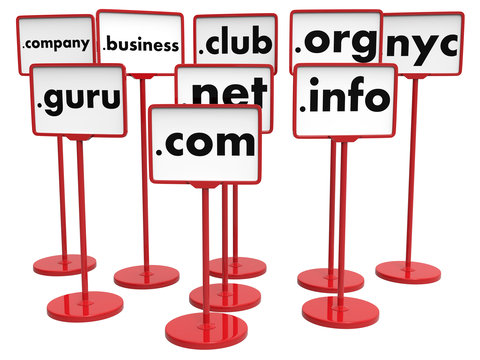 One of the first steps in starting a new business after you have chosen your business name is registering a domain name (or names).
One of the first steps in starting a new business after you have chosen your business name is registering a domain name (or names).
(estimated time 2 hours+ (10 minutes to register the domain, additional time searching for the perfect one (or more) + spend a few minutes on the https://archive.org/ and see whether the domain has been used before and for what* )
-Cost-Your time spent plus $15-30 per year, depending on the registrar**)
Make sure you (the business owner) “own” it. You have sole access to the domain registrar, and it gets billed to YOUR credit card. *make sure to keep track of login information, what email is used to access it, and that your credit card information is up to date (very important!). If someone else registers it for you, ensure it ends with you as owner and full access.
Make sure any domain registrar you use (for example Godaddy and Namecheap) have 24/7 phone and email support. Stay away if it’s only email support and/or a submission form on their website.
**Many legitimate domain registrars will offer you an introductory price for the first year of domain registration. Just be aware of this when writing your business and marketing plans in terms of expenses. A first-year registration could be $2 but it will generally go up to $20 or more per year with internet fees and taxes.
Having an SSL certificate is very important for Search Engine Optimization. Some domain registrars include a free SSL certificate with the domain name, and some offer it at a low cost. There are also a few who only let you add a free or otherwise purchased SSL to the registration if it’s done through the registrar company, so investigate this prior to settling on a service.
Some hosting companies offer free SSLs as part of website hosting services. If you register your name with Godaddy (as an example), who charges for an SSL certificate, you can get your SSL through your hosting company instead.
If you want more information on SSL Certificates, Hubspot has an excellent beginners guide to understanding SSL https://blog.hubspot.com/marketing/what-is-ssl
Always make sure you keep your login information in a safe place where you can retrieve it, and VERY IMPORTANT, make sure your credit card information on file with the registrar is up to date. If you change your email address and no longer will have access to the email address on file, make sure that it is updated.
If your domain name expires, there are companies out there who will buy your domain, and make it either impossible to get back or try to charge you thousands of dollars to retrieve it (many times unsuccessfully).
Your domain registrar will NEVER send you a snail mail reminder to renew your domain. Many fraudulent companies and scammers send snail mail to try to trick you into switching your domain name to them using scare tactics.
If you get a letter in the mail from (to name a few common ones), shred it, it’s a phishing/fraud scheme.
- Domain Listings
- Domain Info
- IDNS
- Domain Registry
- Domain Registry of America
- Web Listings Inc
- Domain Networks
- United States Domain Authority
A good reference article is Domain Name Solicitation Fraud – brand owners beware https://www.jdsupra.com/legalnews/domain-name-solicitation-fraud-brand-8729877/
*A domain may have been previously registered, and the business attached to it may have closed or just not renewed the domain. One: if it was used prior; were there any bad connotations attached to it? Two: There may be websites out there on the internet that may have the old domain listed. You want to track these down and see if this is something that could cause brand confusion or other issues down the road. Not every website and directory will have contact information (or the attention) and allow you to remove outdated information.
Example. Your business is in Manchester, NH, and you own an auto repair shop (you do not work on classic cars, and you do not do auto restoration. The domain was previously registered to another business; the old business was in Illinois, it was an antique car restoration shop, and the domain is listed on multiple websites.
You can also have private domain registration, which hides your personal information (i.e., name, address, phone, email, etc.). This option is more expensive, and while some marketers say you “should” do it, I’d like businesses to consider if it’s really worth it. If you own a business and on your business website, you have your name, email, etc., and it’s all over other places on the internet, what’s the point? Anyone (including scammers/spammers) can get that information easily anyway. The only time I would suggest (and this is a personal opinion) that you use private registration is if you have a home office and your billing information is your house address instead of a P.O. Box and you don’t want that info out there.
If your only option for registering a domain name is .net and the .com is already taken, what is sitting on the .com? Can it impact your business? How many potential customers/clients/guests might you lose if someone wasn’t paying attention (or didn’t know) and went to the .com version?
Is it worth it to register multiple domain names? It is worth it to grab the .net extension of your name. If your name is easily misspelled, it may also be worth it to register any variations of the name that might commonly be mistyped. While you can have the .net extension and any other domain names forwarded to your main website, be mindful of the cost. Are you really using them for anything or going to use them for anything? Is there a point in registering them? two domains, .com and .net will run you about $40+ per year; the more you buy, the more you will have to pay to keep them registered every year. Instead of saying yes, it is worth it to buy more names, or NO it’s not worth it, here are some articles to review, and you can decide whether it’s worth your time for marketing and expenses.
Keep in mind several of these articles are written by domain registrars.
My personal take on buying additional domain names? Yes, it can be worth it, IF you use them and if you forward them or direct them to specific pages or unique landing pages, but in my experience, most people buy them, and they just sit there (not directed to anything) in the domain registrar for years and people keep paying for them year after year.
by Heather T. | Sep 9, 2023 | Business, Marketing, Observations, Operations, Safety, Security, Social Media
 This is my 2 cents based on what I know about AI so far. Since I am still spending several hours per day learning new AI platforms, and new information it’s going to be a moving target info wise, this is my knowledge and my personal take on all of this so far.
This is my 2 cents based on what I know about AI so far. Since I am still spending several hours per day learning new AI platforms, and new information it’s going to be a moving target info wise, this is my knowledge and my personal take on all of this so far.
AI Platforms output is not always correct, ALWAYS fact check especially if you are using it for a research tool. Hopefully that information is out there already for most people, but I’m still running into people just testing the waters for the first time that don’t actually know that.
Keep in mind anything added to AI engines is being used to train the AIs; don’t ever put confidential or private information in. Also, be cognizant of putting any personal information in. Just like you shouldn’t be using your favorite vacation spot as a password, hackers are also using personal information to train AIs to hack into accounts.
There has been a recent uptick in hacked social media accounts that is being attributed to AIs being trained by hackers to browse for personal information used publicly online, and that can include data being put into AI generators.
Some AIs are allowing you to opt out of data gathering as well as some platforms and programs that also integrate AI into their software.
To opt out of ChatGPT
- Go to your account at far left bottom, click on the three dots
- Go to settings
- Go to the Data Controls tab on left
- Slide “Chat history & training” to off
Meta/Facebook
Adobe
Don’t use text straight from an AI platform for website text, blog text, or any other online published article text (social media posts are an exception as far as I can tell). Always rewrite and reword a bit. Google can tell it’s AI-generated content, and it can affect your Search Engine Optimization (i.e., how a business website gets found in Google search)
Don’t sign into any AI platform with your Google account or social media accounts, ALWAYS use an email and a unique password to login. Giving access to your Google account creates a backdoor which from a business and personal standpoint, can compromise your email account, and any other Google accounts you own: (Google Suite, Google Drive, Google My Business, Youtube, Google Docs, etc.).
If you are not familiar with Data Breaches and the cost of how it can affect a business (The global average cost per data breach was 4.45 million U.S. dollars in 2023.), please read https://www.upguard.com/blog/cost-of-data-breach and https://www.statista.com/statistics/273575/us-average-cost-incurred-by-a-data-breach/ .
This is also how many social media accounts get hacked. Granting access to Facebook through a backdoor can cause an account to get hacked, and just changing the password to the account, does not remove access, you have to remove app access too.)
If someone does give access to a Google account, and needs to unlink it/revoke permissions , here is a walkthrough https://support.google.com/accounts/answer/2541991?hl=en#:~:text=Select%20Connected%20accounts.
Revoke app access/external Access (social media)
Facebook https://www.facebook.com/help/942196655898243
Instagram https://help.instagram.com/588549329146493
Linkedin https://www.linkedin.com/help/linkedin/answer/a519947
Pinterest https://help.pinterest.com/en/article/connect-to-other-apps-with-pinterest
X (formerly Twitter) https://help.twitter.com/en/managing-your-account/connect-or-revoke-access-to-third-party-apps
Tiktok https://support.tiktok.com/en/safety-hc/account-and-user-safety/connect-to-third-party-apps
Please be extremely careful adding browser extensions to your browser to extend AI capabilities, there are A LOT of unsafe, unsecure and malicious browser extensions out there that can compromise people’s computers and contain malware or keyloggers, a good overview of browser security can be found here https://security.berkeley.edu/education-awareness/browser-extensions-how-vet-and-install-safely .
Malware can use known software vulnerabilities to infect your PC. A vulnerability is like a hole in your software that can give malware access to your PC. When you go to a website, it can try to use vulnerabilities in your web browser to infect your PC with malware. Apple computers can also be compromised as malware and virus programs designed specifically to attack Macintosh operating systems can be even more malicious and destructive than ones designed to attack PCs.
A keylogger is a form of malware or hardware that keeps track of and records your keystrokes as you type. It takes the information and sends it to a hacker.
A best practice is to NOT download any AI software. If there is a web-based version, use that instead. Before downloading any kind of software, do your research. Just Googling the name and reviews, or the name and whether it is safe will not give you legitimate search results. Insecure and malicious sites and software have a lot of sites that are either set up by them or paid to have them set up to make software come across as safe and legitimate. If you do download anything, make sure you have a good antivirus AND a good malware program, and it’s up to date; scan the program files before installing. When in doubt (even a little) don’t do it.
*Most antivirus programs say they cover malware, but they only cover a fraction of what’s out there. It’s best practice to have both. On average, over 500K malware and virus programs are created daily. I recommend Malwarebytes (free and paid versions are available). There are other good ones out there as well.
Be cautious when using AI photo editors/generators. This is a big gray area online at the moment, but watermarks and digital watermarks are being pulled into AI-generated works. Remember that AI-generated art aggregates other online media and creates something with it, including copyrighted artwork and photos.
Currently, it’s best practice not to use AI-generated art on anything online “owned” by a business—a website, blog, etc. There is a spate of lawsuits going on currently regarding copyright, and until things are officially ruled on, it’s better not to take a chance. I look at it this way: if a business gets sued for using a copyrighted image that was integrated and generated by an AI platform, the AI platform has Terms of Service that give themselves a waiver (the platforms) from liability but not the business, and even if the suit does get dismissed, there is the time, money and reputation of the business that is risked.
Until the courts have consistently ruled about this and more AI art generators start to accept their own liability for using copyrighted art in generated work, it’s better to be safe than sorry.
If a business gets hit with a claim by Getty images, the beginning claim will start at around $1500, they don’t care if you remove the image online, they WILL send collections to harass a business until they pay up. If you want some background on Getty copyright claims just Google: “Getty images copyright claims small businesses” or email me. I’ve been told horror stories by hundreds of businesses, and had to help several dozen businesses over the years who have been hit with Getty claims.
Keep in mind as well that many AI art generators claim copyright to the images produced and many only state that you can use the generated images for non-commercial use.
(September 7, 2023) Microsoft announced it will protect users from Copyright claims. (Which is terrific news, hoping additonal platforms will step up to this).
https://blogs.microsoft.com/on-the-issues/2023/09/07/copilot-copyright-commitment-ai-legal-concerns/
Canva (Canva.com) terms of service regarding AI generated content (as of 9/8/2023)
https://www.canva.com/policies/text-to-image-terms-2022-12-06/ *Note: Read the Legal Notice
I’ve talked to Canva about this, and they refer to this (above link) and have stated by email that to date, they will not be liable for any copyright claims. I first found this as a potential issue because certain prompts in their text to AI image generator, particularly using the watercolor feature, return a large portion of the time images that look like they have copyright signatures in them. From our 17 email exchanges about this topic: “We understand that the appearance of signatures on AI-generated images can be surprising and even concerning. We’re exploring solutions to mitigate their occurrence. However, the signature generated by Text to Image is just that: generated by the AI model. The AI model (Stable Diffusion) has learned from reviewing billions of pieces of data that some forms of images, such as paintings, often have a signature in a bottom corner, so it generated its own variation of one in response to the prompt.” Interesting that the AI platform only seems to be assigning “create a watermark” to the watercolor feature and not concept art, color pencil or ink print, to name a few options, and it doesn’t explain things that pop up like on the image to right where you have a double signature……. I have noticed (so maybe they paid a little attention) that the number of images has decreased in recent testing, but the one on the right I generated on Friday in Canva, so they still have some work to do. And since Getty Images is in the midst of a lawsuit with Stable Diffusion about this very topic…….
Example:

I love Canva, it’s incredibly useful, don’t get me wrong, but I also have a much greater concern that someone i.e. a small business, will use an image generated by the Canva Image generator and get sued not understanding that Canva isn’t going to protect them. So make sure the TOS is read and more importantly understood!
Stability AI https://stability.ai/terms-of-use (as of 9/8/2023)
Midjourney https://docs.midjourney.com/docs/terms-of-service (as of 9/8/2023)
DeviantArt https://stability.ai/terms-of-use (as of 9/8/2023)
The better the prompt the better the results, a good resource for learning how to use prompting is https://learnprompting.org/
I found using several AI platforms at once and putting in the same prompts gives in some cases, very different and varied feedback/results, if you’re using it for marketing, use it to cherry pick the best of the best.
Useful AI Platforms (there are many many more)
https://chat.openai.com/ (free and paid versions, the paid version is $20 per month)
https://claude.ai/chats
https://bard.google.com/
https://www.bing.com/?scope=web&cc=US
https://elicit.org/ (for research from papers and publications)
How can it help small businesses? and What can AI be used for?
To date this list (and it’s the tip of the iceberg) is what “I” have used AI platforms/generators/sites for and found useful. There are 100’s of additional uses besides these listed, these are just the ones I’ve used so far. I find I’m using AI on a daily basis as it is so incredibly useful for a wide variety of things.
For marketing and business development:
- Research (always fact check)
- Business and consumer trends (always fact check)
- Article rewrites (see above #3)
- Social Media Posts
- Email scripts and scripts for autoresponders
- Keyword Research (always fact check)
- Generate video scripts
- Creating chatbots for customer service
- Automating emails
- Writing social media ad copy
- Writing print ad copy
- Writing Google Ad words and Bing Ad words copy
- Create, edit, and modify media and video files (mostly paid AI platforms including ChatGPT plus)
- Blog titles
- Blog posts (see above #3)
- Email marketing subject lines
- Email marketing content
- Website content* (see above #3)
For operations:
- Training Manuals
- Employee Manuals (always run by an HR pro)
- Transcribing text
- Automating tasks
- Voice assistants
- Help with grant writing/grant writing
- Cover letter and resume writing
- Inexpensive marketing ideas for small businesses
- Generate customer surveys
- Proofreading and Editing
- Create contracts (always run by a business lawyer)
- Scripts for lectures and talks (or a speech for an event or wedding)
- Lesson plan outlines
- Writing and debugging code
- Creating WordPress plugins
- Creating WordPress themes
- Write product descriptions
- Create tests
- Explain complex topics in layman’s terms
- Create content in other languages (please use a human being to double check)
- Create Interview questions
- Translate text
- Create outlines for a book or other content
- Creating job descriptions
- Creating job applications
- Creating job search listing content/text
- Extract data from text
- Product/service name ideas (same caveat as business name ideas below/Please check!)
- Business name ideas** (see below screenshot). Please make sure any business names are checked online before registering, in testing most of the major AI generators/platforms they are ALL making suggestions that when do a search in Google, many of the business names are already being used. This is a screenshot from the paid version of ChatGPT. Highlighted names for example are names already in use (9/8/2023)
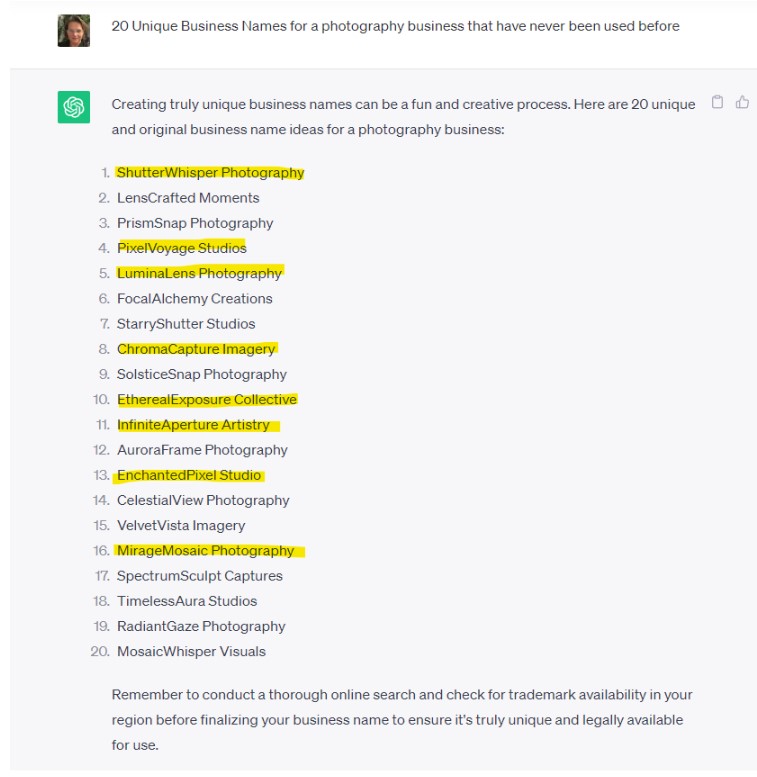
Again this is the TIP of the iceberg on what a business can do with AI, with the exception of the video editing, all of the above were done using the free versions and free tools that were out there without adding browser extensions, or giving access to my Google account. So until the wild west of AI platforms has some more security and rules and regulations in place, how safe do you want to keep your business??
AI Program/Platform Directories (Many more out there, I found these useful to start)
One of the good Newsletters I subscribe to: (there are hundreds +++ out there. This one is an aggregate)
Articles of Interest:
by Heather T. | Sep 27, 2022 | Business, Facebook, Operations, Safety, Security, Social Media

1. You allowed unsecure or compromised apps (applications) access to your personal Facebook page (and, through it, your Business page). These can be old, outdated Business page add-ons that are no longer supported by the developers or by Facebook, or they can be malicious applications that deliberately want to gain access to your account.
2. You had an employee or used an external company, and you gave them full access to your Facebook business page. You had a falling out with them or fired them, and they kicked you off your Page as an administrator and then compromised your Page or deleted the Page.
Reason One (more information) and what to avoid.
It would be best if you give as few external applications as possible access to your Facebook account (and, through that, your Business page). Most people grant app access in a variety of ways, to play Facebook games or to take silly quizzes (please do NOT do this!) as many of these are purposefully malicious or they are easily compromised, and though that can compromise your account.
The other way to be compromised is to log in to external sites using your Facebook account. Zoom, for example, gives you the option to log in with Facebook; it also gives you the option to log in with your Google account (please DON’T do this either, it’s even worse). Always create a new account using your email address and a unique password, don’t ever connect social or Google apps. Some newspapers and blogs offer social sign-ins and Google sign-in options as well; please create a unique account with these platforms. An external account gets hacked or compromised, so can any accounts it has access to from the back end.
If your account was compromised through an external application, changing your password in Facebook does not stop the hack; you need to remove the app at fault (I always recommend disconnecting everything and readdressing and reconnecting if there is one you need later on) and then change your password.
See the link at the end for how to access where your app access is located so you can check and disable them.
Reason Two (more information) and what to avoid.
A Facebook business page owner should be the only person with “full” access to the Page and at least one additional person who you implicitly trust: a spouse, a business partner, or your BFF from grade school.
Why have that? What happens if your personal account is hacked or you get locked out of Facebook, either temporarily or long-term? Facebook has no support system per se, no phone number to call for help, and the only way to “sometimes” get them to respond is multiple support requests, and I mean dozens of them. Sometimes…….
Giving an employee or manager, or external company full access to your Facebook page can be a recipe for disaster. If you do, please make sure you trust them! I could tell you countless horror stories about employees or managers being fired and still having access to a page. You can guess what happens from there. I know one marketing company in New England that had a tiff with a tourism group about seven years ago, and they deleted the tourism group’s Facebook page, of which there were over 6000 followers on the Page. Facebook will not restore a deleted page if you don’t have access to it as an administrator. And now, with the New Page Experience, it looks like it can’t be restored at all.
Anyone helping with a page can get more limited access (which means they can’t delete the Page or add or remove admins).
Currently, most pages still have multiple levels of access:
- Admin: Can manage all aspects of the Page. They can publish and send Messenger messages as the Page, respond to and delete comments on the Page, post from Instagram to Facebook, create ads, see who created a post or comment, view insights, and assign Page roles. If an Instagram account is connected to the Page, they can respond to and delete comments, send Direct messages, sync business contact info and create ads. This person can manage everything you can, including the ability to give access to others, remove anyone from the Page (including you) or delete the Page.
- Editor: Can publish content and send Messenger messages as the Page, respond to and delete comments on the Page, create ads, see who created a post or comment, post from Instagram to Facebook, and view insights. If an Instagram account is connected to the Page, they can respond to and delete comments, send Direct messages, sync business contact info and create ads.
- Moderator: Can send Messenger messages as the Page, respond to and delete comments on the Page, create ads, see who created a post or comment, and view insights. If an Instagram account is connected to the Page, they can respond to Instagram comments, send Direct messages and create ads.
- Advertiser: Can create ads, see who created a post or comment, and view insights. If an Instagram account is connected to the Page, they can create ads.
- Analyst: Can see which admin created a post or comment and view insights (i.e., statistics).
The “NEW” Facebook Page Experience:
People with Facebook access
- Content-Create, manage or delete posts, stories, and more as the Page.
- Messages-Send and respond to messages as the Page.
- Community Activity-Review and respond to comments, remove unwanted comments and report activity.
- Ads-Create, manage and delete ads for the Page.
- Insights-See how the Page, content and ads perform.
- This person can manage everything you can, including the ability to give access to others, remove anyone from the Page (including you) or delete the Page.
And some other actions that still seem to be in a bit of flux, you can now control a bit more than you could last year. Last year it appeared that anyone with full access had full control of everything and you couldn’t change it, now it appears you can set access levels with “Facebook Access” and they have added some additional options.
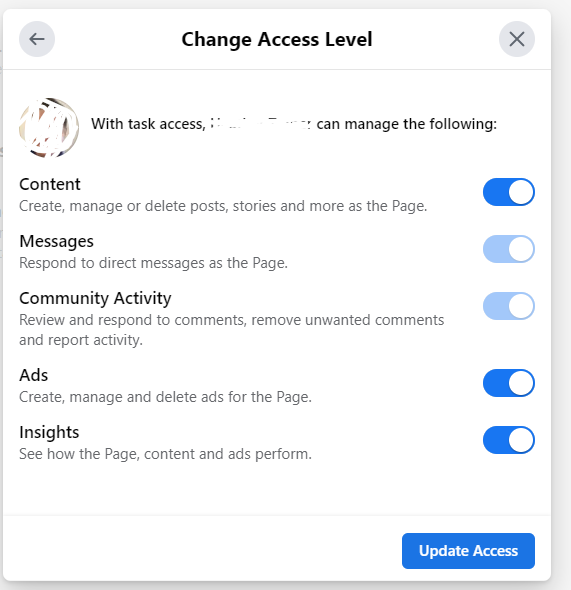
Task Access:
- Community Activity- Review and respond to comments, remove unwanted comments and report activity.
- Messages-Respond to direct messages as the Page.
- Insights-See how the Page, content and ads perform.
- Ads-Create, manage and delete ads for the Page.
Community Managers:
- Community managers can moderate chat comments, suspend or remove people who violate community standards and see all admins of this Page.
As Facebook continues to make changes to the “New” Facebook experience, I would make a note to keep checking access levels and who has access to what. When the changes first rolled out last year, anyone who had any kind of access level to a page automatically got bumped up to “full” access. It appears (I hope) that they have fixed this and added additional levels and options, which is great.
What is not so great is that anytime Facebook makes a change, especially to options in the administrative section, they don’t tell anyone about it. I’ve been tracking the changes with the roll out to the new format since last year, and as usual, anytime a minor (but sometimes very important) change is made to business pages, they don’t make any kind of point of informing users about it.
Even worse is it appears they have now totally deleted the holding period for deleting a page (definitely moot if you don’t have access to it anyway, but….). In the old version, You’ll have 14 days to restore it in case you change your mind. After that, your Page will be permanently deleted.

Old Page Version
In the new version it looks like once it’s deleted, it’s gone.
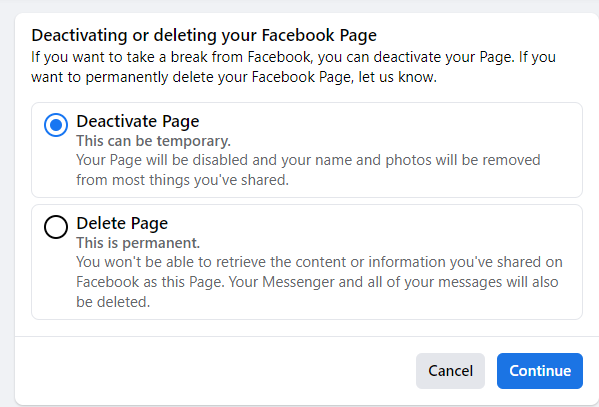
New Pages Experience Version
While it’s a lot harder to actually dig down to where to get to delete the Page in the new version vs. the older version, this is still NOT a good thing. So please stay on top of your access levels!
Tied into this, you think your personal Facebook account got hacked because you started getting reports from your friends that you were sending weird requests or odd messages to them.
There is a huge number of fake Facebook accounts, far more, I think, then Facebook will ever admit to. With the fake accounts, they take the name of someone, create a new account, and then take the profile picture and header image from the person they stole the name from and use it on the fake account.
They then target your friends (because your friends list is open to anyone logged into Facebook) and start sending them friend requests. Many people accept the request because they see a name and photo of someone they recognized, so they don’t necessarily remember if they were already connected and hit accept. This is the way these fake accounts spread. Most people automatically assume they have been hacked, panic, and change their password. No, folks your account has not been hacked; it’s been cloned. Have friends report the fake profile ASAP. You need to lock down your friends list and also be very aware of what you post.
How can this hack your business account? It usually doesn’t directly, but it can cause identity theft of both your information and your friends’ information, and an awful lot of people have gotten scammed from these both identity-wise and financially.
And I do know two businesses that had employees that got their employee’s Facebook personal accounts cloned. The fake accounts messaged the owner of the business pages they worked for, and the business owners granted the fake accounts access to the business page, thinking they were the real employees and then had hacked pages and deleted pages. One more reason to limit access in the backend of Facebook.
Locking down your friends list and near the end (because it’s in the same section) how to see what apps have access to your personal (and business account with that).
by Heather T. | Oct 15, 2020 | Marketing, Operations, Security, Websites
 So ADA Website Compliance, for those who have not heard of it, yes it’s a thing. For those who have heard of ADA psychical compliance, yes it is related but it relates to your website instead of physical space and also to parts of your online presence. And just because your business does not have to be physically ADA compliant, does not mean you get a free pass when it comes to online website compliance.
So ADA Website Compliance, for those who have not heard of it, yes it’s a thing. For those who have heard of ADA psychical compliance, yes it is related but it relates to your website instead of physical space and also to parts of your online presence. And just because your business does not have to be physically ADA compliant, does not mean you get a free pass when it comes to online website compliance.
If you have a brick and mortar business you should be ADA website compliant. If you are on online business, it’s another gray area, but you should be regardless. A recent court case in CA brings up the point that we may have to be as well. See: A Second California State Court Judge Says the ADA Covers Online-Only Businesses.
This first came to my attention a few years ago when the lodging association I work for started getting a lot of lodging properties hit with threat letters saying that their websites are non-ADA website compliant. And so it was that I had to get up to speed with what ADA website compliance meant.
And here comes the rub, for small businesses, there is no set in stone legal guidelines we are supposed to be following, only suggested guidelines and they are important for businesses to follow for several reasons besides just making a website compliant for people with disabilities.
One, WCAG (Web Content Accessibility Guidelines) also has a lot to do with good SEO (Search Engine Optimization, ie getting found in Google search) but it also has a solid basis in good marketing, ease of navigation, ease of readability, etc.
For example, if your customer base is over 55, chances are they no longer all have 20/20 vision, if the text on your website is font size 6, not only is it not going to be ADA compliant but it will also probably not be user/customer/guest friendly, odds are you will have a pretty high bounce rate (i.e. they will navigate away) with the people that can’t easily read the text on your website who will probably go elsewhere to shop, so you have lost a sale. And that’s just one example out of many.
Why do I bring this up now if it’s been around for several years and not a new thing? With the start of Covid, we saw a drop in the number of cases and threat letters, unfortunately in the past few months, both have been on the rise.
Two, there are an awful lot of business owners who are still unaware of this, and three, the bill that has been sitting in the government languishing literally for years is being reintroduced. House Bill Introduced to Require Accessible Consumer Facing Websites and Mobile Apps was introduced (or technically reintroduced with changes from some years ago) at the beginning of October. Whether it passes or not, we won’t know probably for a while, and there are some big pros and also some big cons for businesses if it does. If that does come to pass, we may have more direction (which would be good) but we may have fewer protections (not so good) but again we won’t know unless it passes.
This is a tough one as well because even if you or whoever you work with as a website designer makes your website on the technical side 100% ADA compliant, it doesn’t mean you would pass a visual site audit by a specialist or be oked by someone using a screen reader whose job it is to specifically test websites. There are technical audits you can run to check your site at least to start with and get a heads up if your website is in really bad shape compliance wise. It’s a good place to start.
Website Accessibility Checkers
There are a ton of things that you can do (many are small changes) to make your site as accessible as possible. Adding an accessibility statement to your website is very much suggested as well as when you (or your web designer) make changes to the site, you document document document. If your business does end up going to court, having proof that you gave someone an alternative way to get the information provided on your site as well to show the fact that you know a business needs to be compliant and you have been working on it (and documenting that you have been working on it) seems to go a long way in the court cases that I have been tracking.
There is some hope for ADA complaints (which the bill, if it passes, may or may not help with), The Eastern District of New York Provides Businesses an Early Holiday Gift in Strictly Construing Standing Requirements in ADA Title III Case, the gist of this was that a woman wanted to purchase tickets to a performance and failed to actually contact the venue to see if snacks she had to bring because of her disability would be allowed, read the full article to see the full version of this as it is important from a standpoint of having an accessibility statement on your website and giving people alternative means of contacting you, i.e. sending an email or calling vs having to make any sort of transaction or reservation on your website.
I am also glad to see that the serial threat letter senders are starting to make the mainstream news so more people are aware of this. Woman files ADA lawsuits across US as ‘tester’ of compliance as this has been a huge issue for years with a handful of lawyers and plaintiffs sending out threat letters to lodging facilities, art galleries, car dealerships, and many many more types of small businesses.
The importance of having an ADA compliant website is so that your website should be as ADA compliant as possible because it is good business practices and because it should be accessible to everyone. Unfortunately, the ongoing slew of drive-by lawsuits are not helping this get recognized as the true reason to do so, instead relying on scare tactics and the FUD (fear, uncertainty, doubt) because it’s been such a gray area for so many years.
All of the people with disabilities I have discussed this issue with are not very happy about this either. It reminds me (and I personally have a huge problem with this) of people passing fake service dogs off as the real thing, it makes it that much harder for people that have real service dogs. As someone with a disability myself (dyslexia and I name that because I am great example of if your website has text (small font size and/or fancy dancy script on it) you’ll see me click away faster then freshly cooked bacon disappears in this house and that’s darn quick!), the drive-by lawsuits absolutely horrify me because it minimizes the real importance of businesses taking this seriously to make sure that a website IS accessible to everyone.
I’d recommend businesses get up to speed on ADA and learn the basics, talk to your web developer (if you have one) and get as much as you can done to make your site as compliant as possible. Even if this bill doesn’t pass, it’s likely to come up again plus your business could be hit with a threat letter at any time.
My two favorite law blogs to follow, they both have a free newsletter subscription so you can keep up to date on current news regarding all types of ADA.
Additional ADA Website Accessibility resources:
State and Regional ADA Resources (not every state has ADA resources, check your regional offices first for information)
- New England ADA Center Connecticut, Maine, Massachusetts, New Hampshire, Rhode Island, Vermont
- Northeast ADA Center New Jersey, New York, Puerto Rico, Virgin Islands
- Southeast ADA Center Alabama, Florida, Georgia, Kentucky, Mississippi, North Carolina, South Carolina, Tennessee
- Disability Rights and Public Accommodations: State-by-State (for Southeast ADA Center)
- Mid-Atlantic ADA Center Delaware, District of Columbia, Maryland, Pennsylvania, Virginia, West Virginia
- Great Lakes ADA Center Illinois, Indiana, Michigan, Minnesota, Ohio, Wisconsin
- Southwest ADA Center Arkansas, Louisiana, New Mexico, Oklahoma, Texas
- Great Plains ADA Center Iowa, Kansas, Missouri, Nebraska
- Rocky Mountain ADA Center Colorado, Montana, North Dakota, South Dakota, Utah, Wyoming
- Pacific ADA Center Arizona, California, Hawaii, Nevada, Pac. Basin
- Northwest ADA Center Alaska, Idaho, Oregon, Washington
I am not an ADA expert, I just know more then your average person but I am also learning new things every day as additional issues get raised and as businesses get hit with threat letters and come to me looking for additional information. Awareness is the first step, taking action to make your business accessible is the second.
by Heather T. | Feb 27, 2020 | Bed and Breakfasts, Marketing, Operations, Security
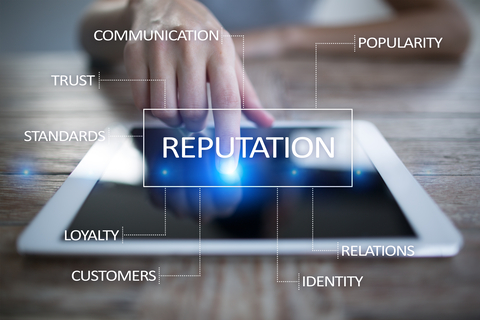 Many businesses large and small don’t think about creating a social media crisis strategic plan until after the fact. I liken it to not backing up your personal and business information from your computer or computers until after the fire that guts your office or the flood that sweeps away the business.
Many businesses large and small don’t think about creating a social media crisis strategic plan until after the fact. I liken it to not backing up your personal and business information from your computer or computers until after the fire that guts your office or the flood that sweeps away the business.
Planning ahead and at least getting a handle on how you would approach an online crisis before it happens is key to helping your business survive an incident without you having to have a mental breakdown during a situation. This can cause an enormous amount of stress between employees and management or partners and spouses/significant others. Or if you are not that concerned about a full-scale online meltdown but simply want to be better prepared when you have a review or two that is negative and you need a plan in place for how to handle it this can be useful to at least do the basics.
I wrote this out a few years ago for a client’s use and just recently updated it and thought it may be helpful to post it as I see many reputation management companies out there making suggestions but not many give (or any I could find easily at least) actual step by step guidelines and suggestions for what to do. I would guess they want you to pay for it but it’s an important topic that many small businesses may not and do not have in the budget to employ a company to handle and manage this.
You can download this in (PDF) Social Media Strategic Plan for Crisis or MSWord Social Media Strategic Plan for Crisis, and here is the text to review if you would like to peruse what constitutes putting a plan in place. This is an outline to be modified or tweaked as needed and to customize it to your own business. Be safe and be prepared! (and backup your information too!!!) Please feel free to take it and adapt for use, if you are going to copy it and use it for distribution, some credit would be appreciated, if you are going to copy it for your own and sell it for a fee, karma will come around and bite you at some point and you are not a good human being, enough said.
Strategy for Social Media Crisis for “Your Business“
Date Created:
Date last updated:
Facebook-Who has Access?
• Name:
• Role in Organization:
• Facebook Access: Admin Editor Moderator Advertiser Analyst
• Email address:
• Alternative Email Address:
• Phone Number:
• Cell Number:
• Name:
• Role in Organization:
• Facebook Access: Admin Editor Moderator Advertiser Analyst
• Email address:
• Alternative Email Address:
• Phone Number:
• Cell Number:
• Name:
• Role in Organization:
• Facebook Access: Admin Editor Moderator Advertiser Analyst
• Email address:
• Alternative Email Address:
• Phone Number:
• Cell Number:
Twitter-Who has Access?
• Name:
• Role in Organization:
• Team Member: Yes No
• Email address:
• Alternative Email Address:
• Phone Number:
• Cell Number:
• Name:
• Role in Organization:
• Team Member: Yes No
• Email address:
• Alternative Email Address:
• Phone Number:
• Cell Number:
Pinterest-Who has Access?
• Name:
• Role in Organization:
• Access to shared boards: Yes No Yes, which specific ones:
• Email address:
• Alternative Email Address:
• Phone Number:
• Cell Number:
• Name:
• Role in Organization:
• Access to shared boards: Yes No Yes, which specific ones:
• Email address:
• Alternative Email Address:
• Phone Number:
• Cell Number:
Youtube-Who has Access?
• Name:
• Role in Organization:
• Youtube Access: Primary Owner Owner Manager Communications Manager
• Email address:
• Alternative Email Address:
• Phone Number:
• Cell Number:
• Name:
• Role in Organization:
• Youtube Access: Primary Owner Owner Manager Communications Manager
• Email address:
• Alternative Email Address:
• Phone Number:
• Cell Number:
Instagram-Who has Access?
• Name:
• Role in Organization:
• Email address:
• Alternative Email Address:
• Phone Number:
• Cell Number:
• Name:
• Role in Organization:
• Email address:
• Alternative Email Address:
• Phone Number:
• Cell Number:
Google My Business-Who has Access?
• Name:
• Role in Organization:
• GMB Access: Primary Owner Owner Manager Site Manager
• Email address:
• Alternative Email Address:
• Phone Number:
• Cell Number:
• Name:
• Role in Organization:
• GMB Access: Primary Owner Owner Manager Site Manager
• Email address:
• Alternative Email Address:
• Phone Number:
• Cell Number:
Yelp-Who has Access?
• Name:
• Role in Organization:
• Full Access: Yes No
• Email address:
• Alternative Email Address:
• Phone Number:
• Cell Number:
• Name:
• Role in Organization:
• Full Access: Yes No
• Email address:
• Alternative Email Address:
• Phone Number:
• Cell Number:
Other Social Media Channels-Who has Access? For Lodging Add Tripadvisor and OTAs, for other hospitality, any other specific platforms that take reviews.
Cut and paste and put the level of access in if applicable:
• Name:
• Role in Organization:
• Full Access: Yes No
• Email address:
• Alternative Email Address:
• Phone Number:
• Cell Number:
What channels and programs are being used to monitor company reputation online? (Be specific) include costs if applicable.
How often are those channels be checked?
Who is responsible for company online monitoring?
• Name:
• Role in Organization:
• Email address:
• Alternative Email Address:
• Phone Number:
• Cell Number:
• Name:
• Role in Organization:
• Email address:
• Alternative Email Address:
• Phone Number:
• Cell Number:
Define what a crisis is
Single Event VS Massive Online Meltdown: (Define)
Single Event (i.e. a comment) VS Single Event that Snowballs (i.e. it keeps getting larger): (Define)
What constitutes an online crisis to your company (be specific if possible)?
What are some of the repercussions your company can face in the event of an online crisis?
Who will be the point person in responding to online crisis events? (Add contact information here)
Who is a secondary person (in the event the first is not available or additional help is needed)? (Add contact information here)
Who needs to be informed of an online crisis? (Add contact information here) Add secondary people who can make recommendations and directions in the event the key people are not available.
And what are the steps and procedures point people need to follow in order to inform the above?
Who should an employee or company contact get in touch within the event something is seen online that the company needs to address? (Add contact information here)
What steps should a point person take immediately if they are unable to get a response from a key person in charge of decisions?
Examples: Unpublish the Facebook Business Page, Deactivate Twitter account (you have 30 days to recover it), Instagram: temporarily deactivate account, Pinterest: temporarily deactivate account, Youtube: turn off commenting, etc. (major crisis)
Or
Delete posts, pins, boards, videos etc. (minor issue)
++Keep in mind people screenshot, so just deleting something doesn’t necessarily mean the problem will go away if someone saw it and took a screenshot or more it can resurface.
Who is responsible for company online monitoring?
• Name:
• Role in Organization:
• Email address:
• Alternative Email Address:
• Phone Number:
• Cell Number:
• Name:
• Role in Organization:
• Email address:
• Alternative Email Address:
• Phone Number:
• Cell Number:
What are the goals you want accomplished?
Examples: minimize publicity etc.
Damage control doesn’t happen overnight, it takes time and attention to it.
Who can your company reach out to to minimize impact and even out bad reviews or other bad publicity?
Examples: employees, past customers, business supporters, press.
If you have press contacts, who are they and how can a company contact them?
What message in a crisis do you want to be conveying?
What can you put out there to promote and reinforce your brand’s core message?
What are your company’s values?
What is your company’s value proposition to your customer base?
In the event of an online crisis, what guidelines for each platform should your point people be following?
For example: Facebook-delete post or respond (outline a standard response)
Yelp reviews- respond (outline a standard response)
Google My Business reviews- respond (outline a standard response)
What follow-up and addition steps can be taken to mitigate an online crisis?
Press Releases-Who will write, who will have input
Website Statement-Who will write, who will have input
Social Media Statement-Who will write, who will have input
Response templates for reviews: Customize to suit the platform, a Facebook response may not be worded quite the same way as you would word a Google My Business review or post:
Facebook:
Instagram:
Twitter: (keep in mind the 280 character count)
Google:
Yelp:
Other channels:
-Write up an initial response for each, a brief response acknowledging and the situation. This needs to go out as soon as there is a problem.
-Write up follow up responses, there will be two main types, responses to worried concerned people and responses to very unhappy/mad people.
-Create responses for key people as well. A moderator may be posting on behalf of the company owner or manager but it needs to be labeled as a response from that source.
What are some questions that might be asked by people in the event of an online crisis? Write some template responses in how to address these common questions.
What follow-up will you do online and off in the event of an online crisis and for how long?
If a crisis, even a minor one occurs, note what were the results of this, what could you have done differently? What did not go as planned? Did the process for addressing a problem go well? If not what could be tweaked to make it better if something happens in the future?
Reputation Management Checklist for Platforms
Google My Business/Google Maps= Checked Listing
Yes No
No: Check
Claimed Ownership of listing
Yes No
No; Claim
Verified Listing Information is Correct
Yes No
No: Fix
Signed Up for Email Alerts of Reviews
Yes No
No: Sign Up
Yelp = Checked Yelp Listing
Yes No
No: Check
Claimed Ownership of listing
Yes No
No; Claim
Verified Listing Information is Correct
Yes No
No: Fix
Signed Up for Email Alerts of Reviews
Yes No
No: Sign Up
Checked Bing Local Listing http://www.bing.com/businessportal
Yes No
No: Check
Claimed Ownership of listing Yes No
Yes No
No; Claim
Verified Listing Information is Correct
Yes No
No: Fix
Signed Up for Email Alerts of Reviews
Yes No
No: Sign Up
Checked Yahoo Local Listing/Yext
Yes No
No: Check
Claimed Ownership of listing
Yes No
No; Claim
Verified Listing Information is Correct
Yes No
No: Fix
Signed Up for Email Alerts of Reviews
Yes No
No: Sign Up
++Note about Yahoo listings, the site signup is confusing, this article may help https://localmarketinginstitute.com/yahoo-free-business-listing/
Optional Merchant Circle, Manta, Other directories
Other services and monitoring:
Check to see if your business name is taken on social networks:
http://namechk.com/
http://knowem.com/
-Don’t sign up for the service, just use it check (and be cognizant of the fact that they don’t seem to be right 100% of the time)
Free Reputation alerts:
http://google.com/alerts (put in quotes for better return results)
Real time search (twitter) https://twitter.com/search-advanced
Paid:
• https://mention.com/en/
• https://sproutsocial.com/plans-and-pricing/
There are additonal paid monitoring services out there, use your judgement, get a demo, talk to other companies who have used them. Benchmark any reports and results if you pay for it.
by Heather T. | Feb 20, 2019 | Security
While Facebook is being overwhelmed with fake Facebook profiles, Linkedin is also on the rise. I get, on average, out of the blue about 3-4 Linkedin requests per week, out of those, at least one or two a week are fakes, up from last year when it was about once a month. The Linkedin fakes are a little harder to spot right off the bat, they are on Linkedin, so I would guess the average education level of the spammer/scammers might be a little higher and the copies of messages I have gotten from friends and clients are definitely a lot more sophisticated then the Facebook messages you might get having connected with some “one” on that platform. And I’ve been getting quite a few reports from friends and clients that they are getting lots of odd connection requests.
A question I frequently get from people when I’ve messaged, emailed them or in some case called (especially if it’s a large group of connections that has been hit), is how do you know it’s a fake?
Step one, eyeball the full profile. Generic photo (red flag), the fact they don’t have a banner image in the back is negligible unless they are Linkedin power users or in marketing, many regular Linkedin profile do not add an image. generic text in the bio (red flag), but he has over 500 connections…….
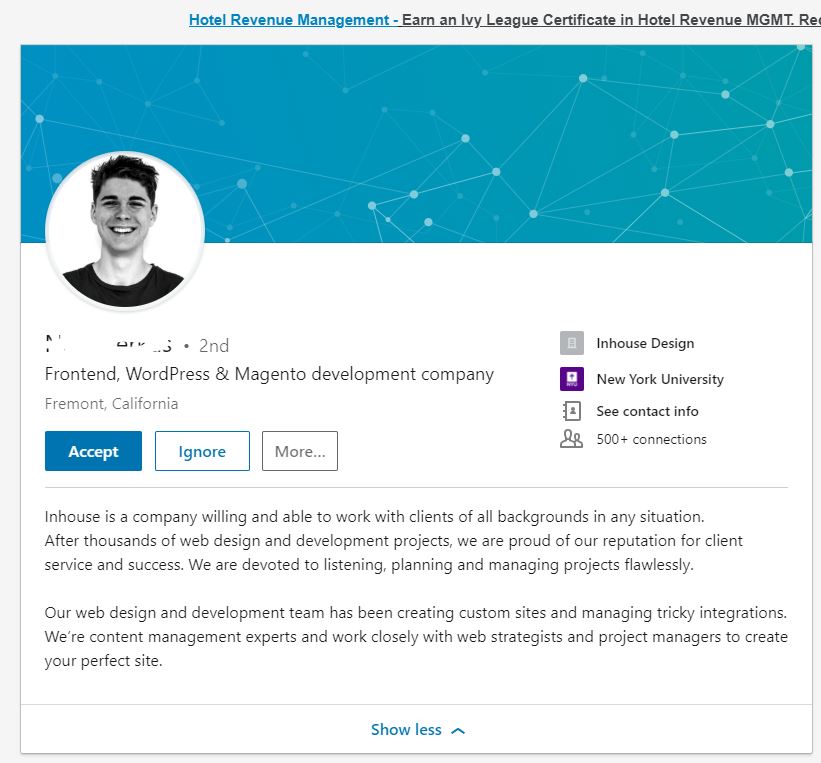
Step two, look for mutual connections and wait ohhhh, we have a mutual connection….. (sometimes more)

Step Three, look at what they list as experience. Do the companies they list have a Linkedin page for the business (in this case it’s a tech business, so if not, red flag). Google the business listed, in quotes, so in this case “Inhouse design” WordPress web design and “Clean Mate Designing” Websites or Website design. Hmm in this no case no search results for either, tad suspicious no for a web development company? The Third one is a real company, but had live chat on their website, so followed through and asked if he had ever worked there. Not that they recall. I also Google the name and location of the fake profile and in this case got absolutely nothing online, anywhere, no websites, no social media channels, Nada. Sometimes you might get a name hit, but its an appropriated name, so John Doe from Missouri in Healthcare is actually John Doe from Missouri but the real person is a Granite Distributor.
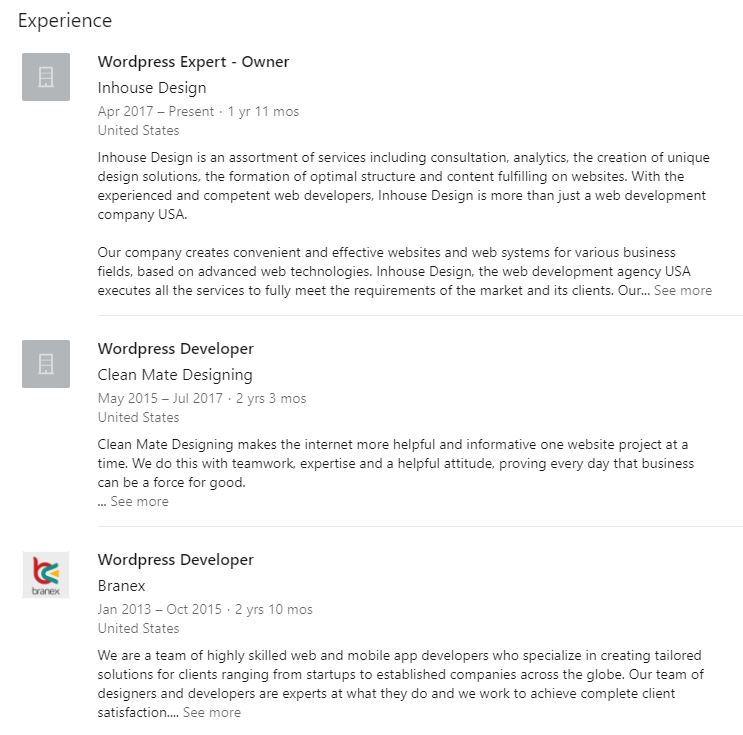
Step Four (in case you were still in doubt when vetting a Linkedin request a this point), Education? “Maybe” I’ve seen schools listed that don’t even actually exist. He (or she) has over 500 connections, but not a single one of them has endorsed them for a skill, that’s a huge red flag.
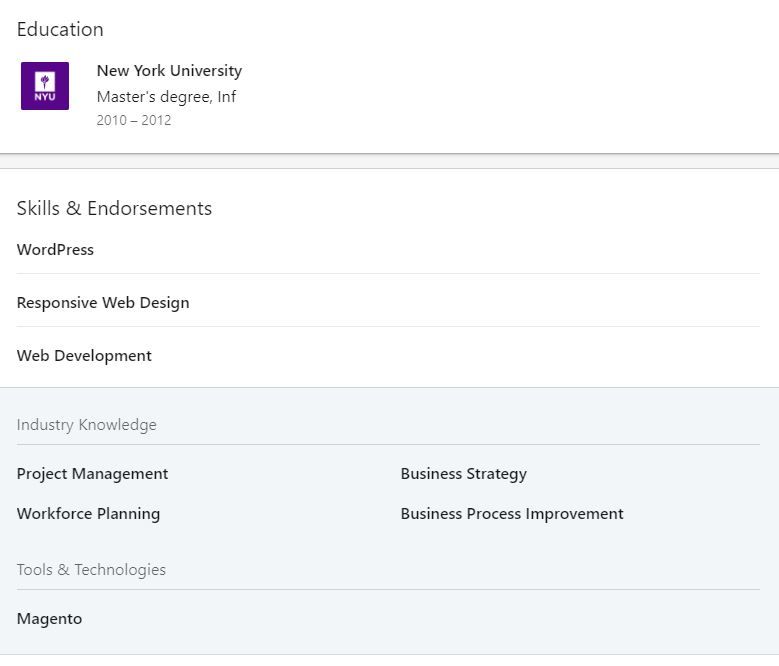
And finally Step Five, reverse search their profile picture, occasionally they are a dead giveaway, I’ve had connection requests from people with Susan Boyle’s photo, Prince Harry and Michelle Pfeiffer, it does seem like most of the fake profiles set up information with Tech information in the bios, but not all. The Susan Boyle one stood out because it said she was a local realtor. Some are posing as Job Headhunters (especially if you list on your profile you are job seeking.)
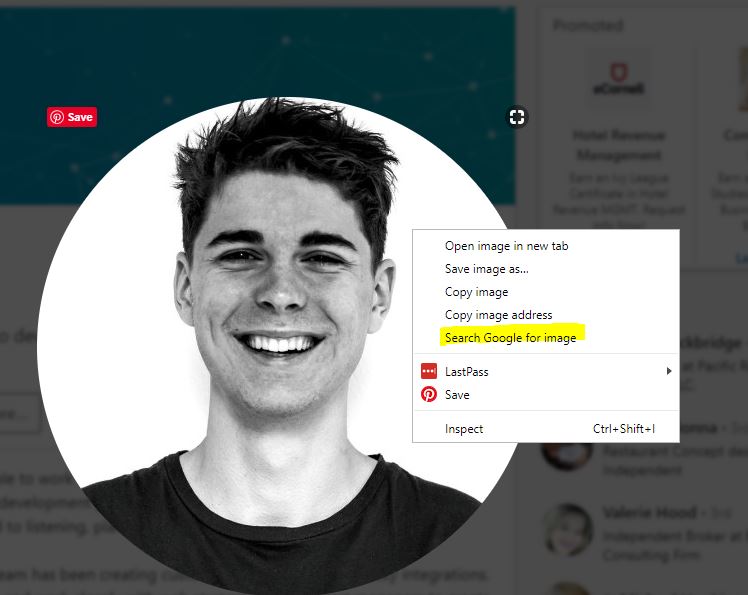
In this particular case, I tracked the image down to a free stock photo site, sometimes you have to dig a little, but generally they pop right up in search.
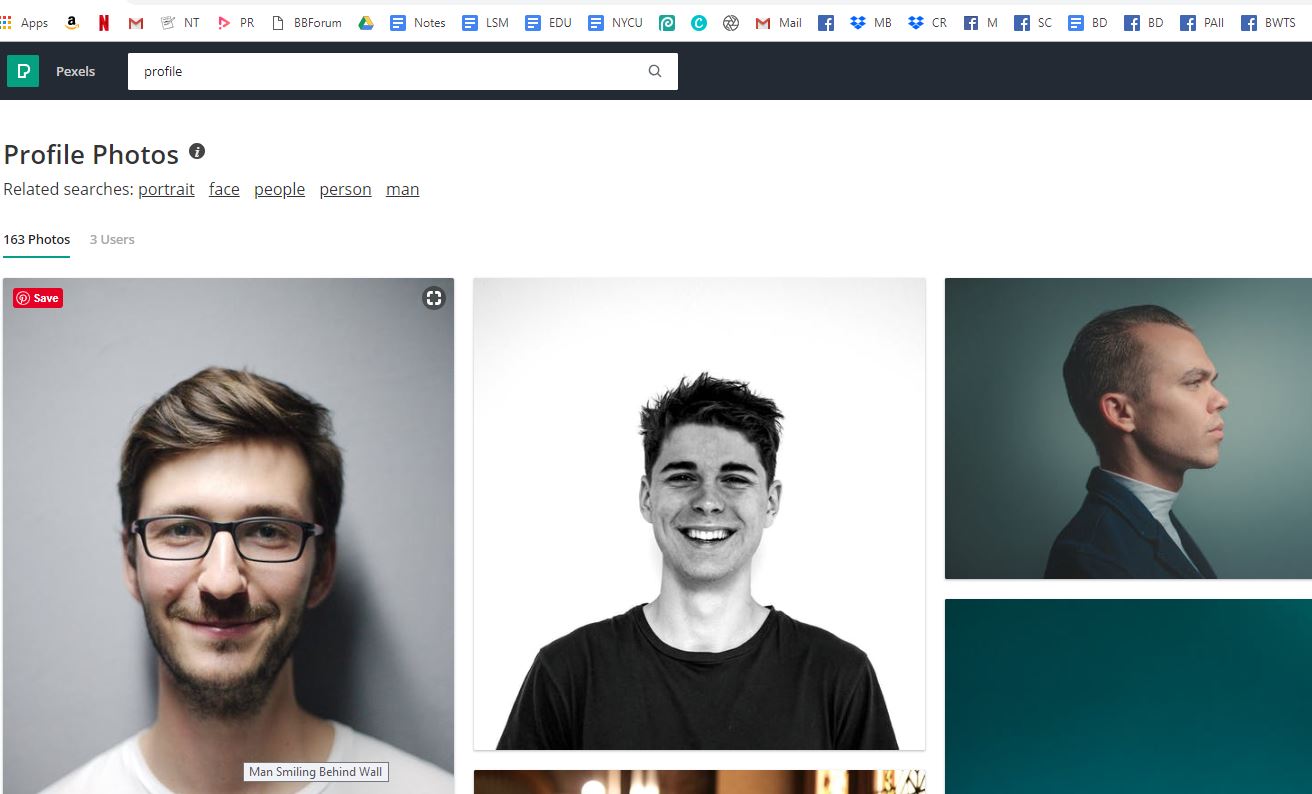
I very much recommend, similar to locking down your friends list on Facebook (even to friends) because once they are connected then they have access, locking down your Linkedin connections, unless you are scrupulous about making sure connection requests are real people, even then unless you are heavily using Linkedin daily, and using it connect with others and facilitate connections, locking it down is a good idea. This is how these people get access, they connect with someone in business and then boom they have access as a connection to see who that person is connected to, and then start sending out connection requests because they know appear as a second degree connection. The same thing happens with Facebook, Billy Joe and Linda Sue are friend/connections so they must be ok.
As I mentioned the messaging is more sophisticated then the Facebook direct messages, frequently offering a special deal or job offers. They are looking to get personal information from you by getting a job application filled out usually with your social security number, or its an investment or buyin scheme requiring you to pay money and get XXXX which never comes through.
Please report/block these profiles and if you are sure it’s a fake, message anyone you know that is connected to them, most people are not aware the connection is fraudulent and may never have received a direct message from the fake account, they are purely being used as a way to leverage more connection requests. When in doubt, ask your connection if they really know them.
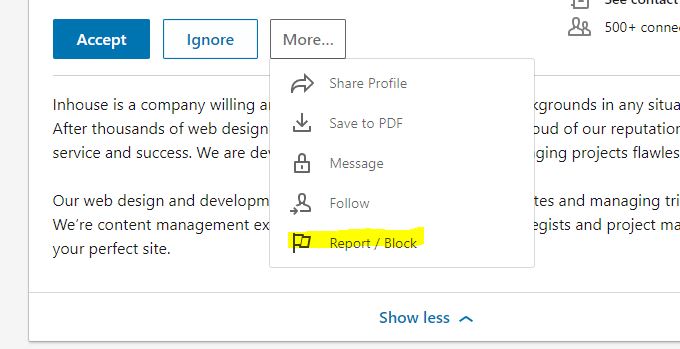
Locking down your connections:
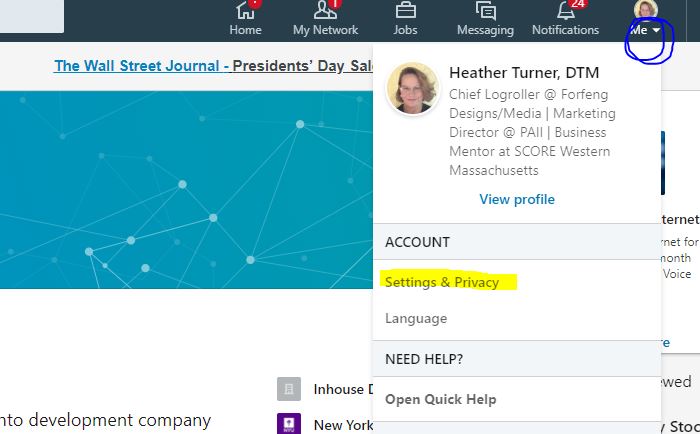 A
A
And while you are in there, I’d recommend besides locking down connections, go through all your back end settings, especially Account -then- Partners and services -then- Permitted Services and disable any application access that you are not 100% sure is safe. If your Linkedin account is or has been or will be hacked, it’s almost 100% of the time through application access you have granted to your account.
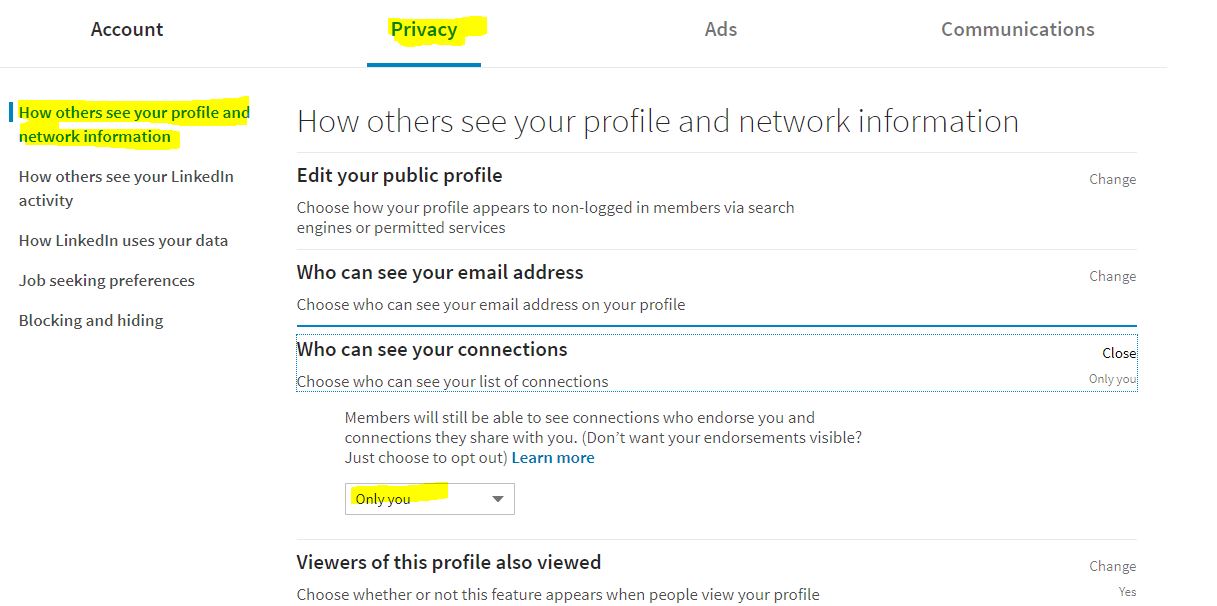
I hope this was helpful, and if you get a Linkedin request that your not totally sure of, please let me know and I’d be happy to take a look.
 One of the first steps in starting a new business after you have chosen your business name is registering a domain name (or names).
One of the first steps in starting a new business after you have chosen your business name is registering a domain name (or names).
 This is my 2 cents based on what I know about AI so far. Since I am still spending several hours per day learning new AI platforms, and new information it’s going to be a moving target info wise, this is my knowledge and my personal take on all of this so far.
This is my 2 cents based on what I know about AI so far. Since I am still spending several hours per day learning new AI platforms, and new information it’s going to be a moving target info wise, this is my knowledge and my personal take on all of this so far.





 So ADA Website Compliance, for those who have not heard of it, yes it’s a thing. For those who have heard of ADA psychical compliance, yes it is related but it relates to your website instead of physical space and also to parts of your online presence. And just because your business does not have to be physically ADA compliant, does not mean you get a free pass when it comes to online website compliance.
So ADA Website Compliance, for those who have not heard of it, yes it’s a thing. For those who have heard of ADA psychical compliance, yes it is related but it relates to your website instead of physical space and also to parts of your online presence. And just because your business does not have to be physically ADA compliant, does not mean you get a free pass when it comes to online website compliance.  Many businesses large and small don’t think about creating a social media crisis strategic plan until after the fact. I liken it to not backing up your personal and business information from your computer or computers until after the fire that guts your office or the flood that sweeps away the business.
Many businesses large and small don’t think about creating a social media crisis strategic plan until after the fact. I liken it to not backing up your personal and business information from your computer or computers until after the fire that guts your office or the flood that sweeps away the business.






 A
A